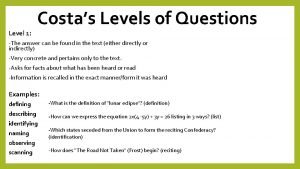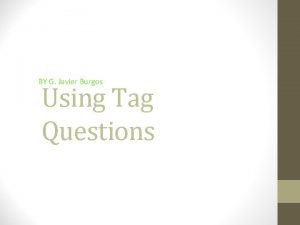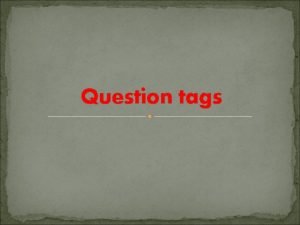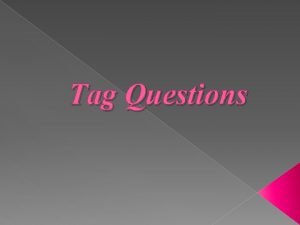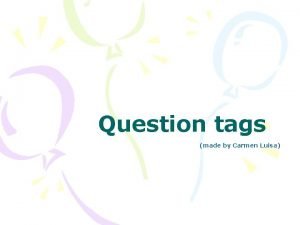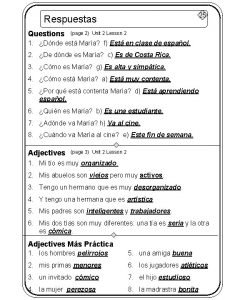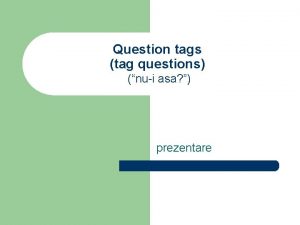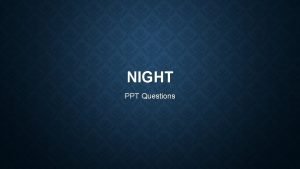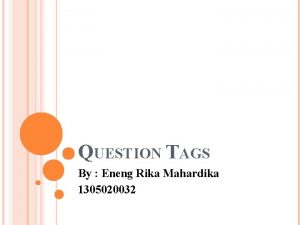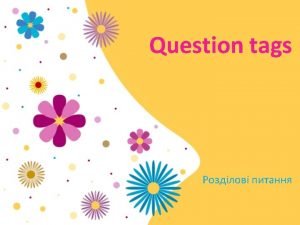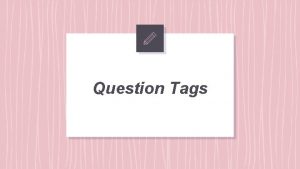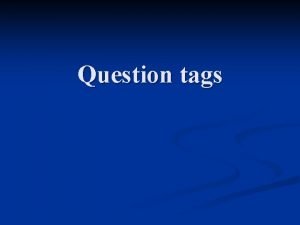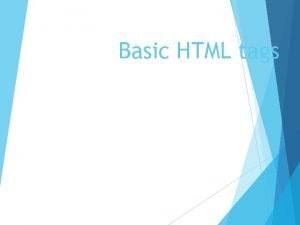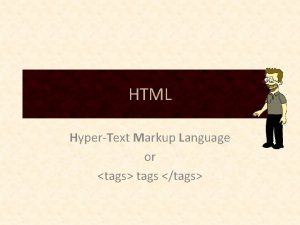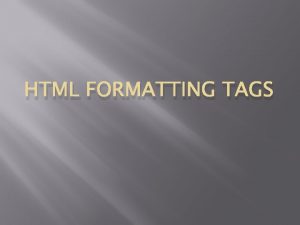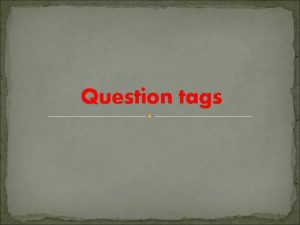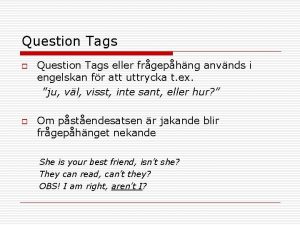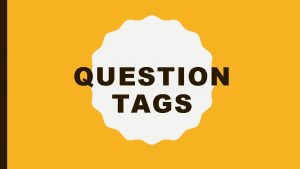Zennytra Rachmativani Question Tags Question Tags is a











- Slides: 11

Zennytra Rachmativani Question Tags

Question Tags is a question added at the end of a sentence. Speakers use tag questions chiefly to make their information is correct or to seek agreement.

Question tags are formed with the auxiliary or modal verb from the statement and the appropriate subject. A positive statement is followed by a negative question tag. A negative statement is followed by a positive question tag. Reza will not study, will he? • Jack can come, can’t he? • Mary can speak English, can't she? He shouldn't say things like that, should he?

Affirmative Sentence + Negative Tag = Affirmative Answer Expected 1. 2. 3. 4. 5. Mary is here, You like tea, They have left, Tomorrow is Sunday, We want to come, . . . . isn’t she? Yes, . . . don’t you? . . . . haven’t they? . . . . isn’t it? . . . . don’t we?

Negative Sentence+ Affirmative Tag = Negative Answer Expected 1. 2. 3. 4. 5. Marry isn’t here, is she? You don’t like tea, do you? They haven’t left, have you? George isn’t student, is he? Lisa doesn’t go to school does she? No, she isn’t No, . . . .

The tag pronoun for this/that = it. 1. This is your book, isn’t it? 2. That is your mobile phone, isn’t it? 3. This is Paul’s pen, isn’t it? The tag pronoun for these/those = they. 1. These are your books, aren’t they? 2. Those are their apples. Aren’t they? 3. These are Paul’s pencils, aren’t they?

In sentences with there + be, there is used in the tag. Examples: 1. There is a meeting tonight, isn’t there? 2. There are many problems, aren’t there?

Personal pronouns are used to refer to indefinite pronouns. They is usually used in a tag to refer to everyone, everybody, someone, somebody, no one, nobody. 1. Everyone took the test, Didn’t they? 2. Somebody played the guitar last night, didn’t they? 3. Everybody watched the movie, didn’t they?

Sentences with negative words take affirmative tags. 1. 2. 3. 4. you’ve been there, have you? Nothing is impossible, is it? Nobody came late, did they? You will never regret it, will you?

Be careful with question tags with sentences that start ‘I am’. Examples: 1). I am supposed to be here, am I not? 2). I am supposed to be here, aren’t I?

Intonation Question tags can either be ‘real’ questions where you want to know the answer or simply asking for agreement when we already know the answer. If the question tag is a real question we use rising intonation. Our tone of voice rises. If we already know the answer we use falling intonation. Our tone of voice falls.
 Level 3 costas questions
Level 3 costas questions Question tags with answers
Question tags with answers Question tags and short answers
Question tags and short answers Negative question tags
Negative question tags Question tags with answers
Question tags with answers Imperative
Imperative Unit 5 lesson 1 un almuerzo en la playa
Unit 5 lesson 1 un almuerzo en la playa Verb auxiliar exemple
Verb auxiliar exemple Ppt on question tags
Ppt on question tags What is question tags and examples
What is question tags and examples Formula of question tag
Formula of question tag Somebody wanted a pizza question tag
Somebody wanted a pizza question tag
